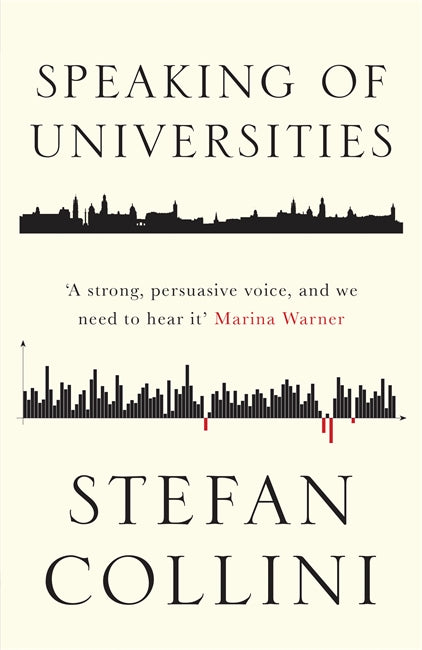ralentina reviewed Speaking of universities by Stefan Collini
A lucid look at the (British) higher education system
4 stars
A collection of speeches and essays around the higher education reforms in Britain in the years 2010 - 2013. I arrived in London in 2011, just a few months after the mass student protests had subsided. I eventually also studied at a British university and then in Hong Kong, a system that inherited some features from the British model and also followed (or proceeded?) Britain in the move towards neoliberal competitiveness. The book delves into many technical aspects of the reform, such as the changes to the funding system, the conditions of student loans and the plan to introduce a teaching assessment framework. But, to focus on the more general arguments...
The first great merit of the book is to make an argument against the reform that goes beyond protesting high fees. Now, I believe British students have all the right to protest university fees, which are arguably the highest in Europe, have nearly tripled in a ridiculously short amount of time and disturbingly raise the social and economic barrier in a country where class already plays such a big role. But, to 'only' complain about raising fees has allowed to present the issue as a sectional interest matter: there you go, over-privileged millennials feeling entitled, university is not a right, it is only fair that you would have to pay for it at some point, anyways they are wasting not only tax payer money but also their own time, etc. Collini takes issue with how the reform push us to consider university education as a service that students access for their own exclusive benefits as consumers. Research and higher education benefit society as a whole - they should not cater to the interests of the government, businesses, nor students.
The other major theme running through the book is an attack to the neoliberal pseudo-economic newspeak that has come to dominate so many aspects of our lives, university included. As someone who was asked in an interview how my research 'speaks to excellence' I couldn't help feeling validated. The choice of words, as Collini points out, matters a great deal, because it pushes scholars to justify their relevance in terms that aren't their own: if they have to prove - often in quantitative terms - how their work 'makes an impact' or 'contributes to growth' they are not only bound to fail on the task, but also to undersell (oooops, wrong word) what they ACTUALLY do.
I also appreciated that Collini resisted the temptation to lament a lost golden era, when university where actual universities. Instead, he recognises that, like most institutions, they change in their ethos and purpose. Nevertheless, he suggests, we should hold on to the idea of universities as a place dedicated to open inquiry, insulated in as much as possible from external pressures and demands.
Which brings me to my last point. I think Collini is persuasive when it comes to counter-arguing the right-wing, neoliberal attacks to the university system. But then again, I'm not an hard audience to persuade. He is less interested in addressing what we could call left-wing arguments against the elitism of universities, not only as places but as ideas. This may be a rhetorical strategy: he is making a case of the unique value of university, has to fend off accusations that professors are lazy and only focused on their narrow work, convince his readers that money spent on humanities research is well spent and so on. Yet, in some parts of the book this insistence on the value of universities and professors weakens the argument. For example, in insisting on the uniqueness of universities, he misses the chance to recognize that other professions and other learning institutions need similar freedom from economic and government pressures (he vaguely acknowledges art institutions may be in a similar position. I think schools could be added to the list - sure they are not pushing the limits of knowledge, but they should be encouraging critical thinking?). Or, in his defense of professors, he glosses over the fact that - whether out of entitlement, exaggerate pressure to publish, or something else entirely - there are in my experience MANY professors who do not take teaching seriously and even bully students. I agree that increasing bureaucratic demands and making funding more precarious is unlikely to help, but one should not minimize the problem. By contrast, I think Collini could have a bit more confidence in students capacity to contribute to discussions about the value of education, and what are things that should or should not change. Not as entitled consumers, but as parties involved.

